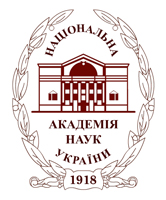1.  |
Видання в опрацюванні - ще не надійшло за місцем зберігання, неповний бібліографічний опис.
Федотова, О. (Київський національний університет культури і мистецтв).
Становлення ідеологічного контролю над творами друку в УСРР у 1919–1924 рр. [Текст] / О. Федотова // Бібліотечний вісник. - 2017. - № 1. - С.27-31
Шифр журнала: Ж14595/2017/1
Кл.слова (ненормированные):
радянська цензура, Головліт, ідеологічний контроль книжкових ресурсів у бібліотечній та книготорговельних сферах, спецсхови, спецфонди.. soviet censorship, printed works, ideological control, book resources, limiting of printed materials, library and book trade spheres.
Аннотация: Статтю присвячено започаткуванню в Україні радянської цензури творів друку. Автор досліджує процес розгортання ідеологічного контролю друкованого слова на початку 1920-х рр. Особливу увагу приділено обмеженню друкованої продукції у бібліотечній та книготорговельній сферах.^UThe article is devoted to the beginning of the creation in Ukraine of Soviet censorship of printed works. The author shows the process of deployment of ideological control of book resources of the republic in the early 1920s. Particular attention is paid to limiting of printed materials in the library and book trade spheres.
Файл: bv_2017_1_6.pdf - 0
2.  |
Видання в опрацюванні - ще не надійшло за місцем зберігання, неповний бібліографічний опис.
Федотова, Оксана (Київський національний університет культури і мистецтв, м. Київ).
Музична література в бібліотеках УРСР як об’єкт цензурування (1946 – 1952) [Текст] / О. Федотова // Бібліотечний вісник. - 2018. - № 4. - С.15-20
Шифр журнала: Ж14595/2018/4
Кл.слова (ненормированные):
радянська цензура, Головліт, ідеологічний контроль за друкованою продукцією, музична література, обмеження музичних видань, бібліотечні перевірки, закриті фонди, проскрипції. musical literature, a library, Soviet censorship, ideological control, restriction of musical publications, checking libraries, closed funds, prohibition of printed editions, proscriptions
Аннотация: У статті аналізується діяльність інститутів цензури з ідеологічного контролю музичної літератури в УРСР упродовж 1946 – 1952 рр. Виокремлено особливості обмеження музичних творів під час перевірок бібліотечних фондів. На підставі аналізу архівних джерел розкрито механізм заборони друкованих видань, процес передавання їх до закритих фондів та практику складання проскрипцій.^UThe article deals with the direction of the Soviet censorship institutes’ work on the ideological control of musical literature in the Soviet Ukraine during 1946 - 1952. The purpose of the proposed article is to show features of the implementation of censorship of music works in the libraries of the Ukrainian SSR. In his work the author used such methods: a retrospective, source analysis, problem-chronological, descriptive, analytical, theoretical generalization, and others. The study describes the practice of reviewing ideologically harmful works of the press, which were subject to withdrawal from the funds of the public use. The specificity of the restriction of musical works in the course of inspections of library funds disclosed by the researcher. Special attention is paid to the lists of authors of music, music treatments and texts that were declared «enemies of the people». Preparation of the proscriptions of books banned personalities of the Book chamber of Ukraine was analyzed by author. As a result of the analysis of archival sources the scientist showed mechanism for the prohibition of printed editions, the process of transferring publications in closed funds. The author came to the conclusion that in the late 1940’s-early 1950-ies musical literature was limited, it did not correspond to the Soviet ideology, especially the works of composers and musicologists, who were called «bourgeois nationalists». As author proves, the limitations of printed works subsequently had negative impact on the further development of Ukrainian culture.
Файл: bv_2018_4_5.pdf - 0
| |
 bv.nbuv.gov.ua
bv.nbuv.gov.ua